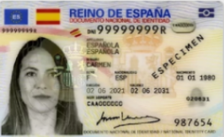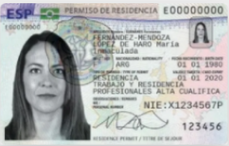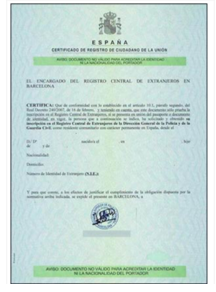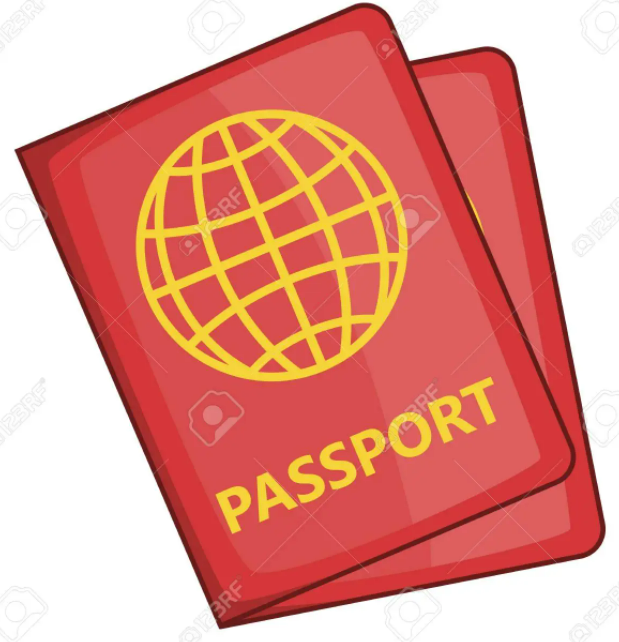This Support Portal is that of the idCAT Registration Entities (Public bodies that issue the idCAT to citizens).
If you are a citizen and need support with the idCAT Certificate or the idCAT Mobile, see:
What does the citizen need to obtain the idCAT?
To obtain the idCAT, according to Law 6/2020, of November 11, and the conditions of use of the service , just:
- Be over 18 years old (you can apply from the day after you turn 18)
- Have one of the following identification documents in a valid state (Not expired):
- DNI (from any of the member countries of the Schengen area ),
- passport
- NIE (must have photo, if not, additional document must be provided)
- Have an email address
NOTES on identification documents:
- To issue the idCAT Certificate only the identification documents listed in the previous list are accepted.
- Foreigners can prove their NIE number by providing the following documents:
- TIE: in addition to the NIE it has a photograph and is therefore used to issue the idCAT with this card. Please note that according to the applicable regulations, the validity of the TIE card is extended until the resolution of the extension request, provided that the renewal has been requested up to 90 days after its expiry and is pending issuance the corresponding resolution (Regulation for the development of the Organic Law on the rights and freedoms of foreigners in Spain).
- Certificate of registration of a citizen of the European Union: it is necessary to provide another official document with a photograph (for example passport or DNI of the country of origin).
- The administrations have configured their applications to allow electronic processing with certificates made with NIF and NIE; however, it is not common for them to allow access with certificates issued from a passport or ID card from other countries. The procedures that can be carried out independently of the supporting document contained in the certificate are those that have nothing to do with public administration, such as, for example, the signing of documents.
Models of identification documents:
 | The DNI certifies the identity of the holder, as well as the latter's Spanish nationality. National identity documents from any of the member countries of the Schengen agreement are also accepted. In the case of ID cards from other countries, a photocopy must be provided in addition to the original. |
 | The foreigner's identity card (TIE) is a physical document that certifies the legal residence of a foreigner in Spain. |
 | Certificate of Registration of Citizens of the European Union Document that accredits the registration of citizens of the Union in the Central Register of Foreigners. This document must always be accompanied by a document with a photograph, ID or Passport |
 | Passport personal identification document with international validity, which identifies its holder, issued by the authorities of a country. |
In the event that a citizen provides a supporting document with an incomplete date of birth, this data must be entered in the "Date of birth" field as it appears on the supporting document. There are some documents (NIE's and DNI's from other countries) in which the date of birth appears without specifying the day and month of birth, and only the year appears. In these cases, instead of the day and month values, "X" (XX/XX/1965) appear.
In order to be able to issue the idCAT certificate, the citizen must be 18 years old. Therefore, since the day and month of birth cannot be verified, for the purposes of counting the age of 18, it must be assumed that the date of birth was 01/01.
In the event that a person wants to validate the idCAT with a DNI without letters (from the old ones), the citizen will be asked if he has the card on which the Ministry of the Interior informed about the letter that corresponded to each number. In this case, a certified photocopy of this Ministry card will be made and attached to the consignment file.
If, on the other hand, the citizen does not have the card with the letter of the NIF, we will not be able to issue him the certificate, since the document he has is a DNI, and not a NIF (which has letters).
It is not common, but it can happen that a foreign person does not have a surname, and only has the first name on the accrediting document. In this case, the system is ready to be able to issue the idCAT, although it gives a warning to avoid this being an error, and the idCAT without surnames is not issued to a person who has them in your supporting document. The cases in which a idCAT can be issued without surnames is when the supporting document is NIE, DNI from other countries or passport, that is to say, if the document is NIF, both surnames of the person must be indicated.
The user's address does not have to match that of the supporting document, the user can put whatever he wants.
This data will not be included in the certificate, and the sole purpose of collecting this information is statistical.